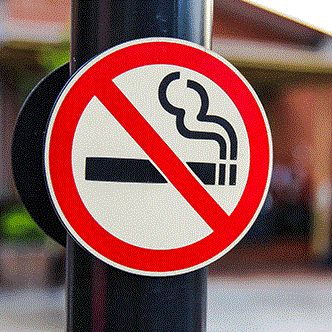
It’s never too late to quit smoking, according to a study confirming the generous health benefits associated with smoking cessation, even in patients already living with heart disease.
Published in the Journal of the American College of Cardiology, this study investigated the impact of smoking on outcomes of two common heart procedures, CABG (coronary artery bypass grafting) and PCI (percutaneous coronary intervention), which are used to treat coronary artery disease. While it’s well known that smoking increases risk for both heart disease and complications from surgeries, studies have produced mixed findings about heart attack risk in smokers with existing heart disease. In fact, some research suggests that among patients living with heart disease, continued smoking may not actually impact risk of heart attack—the most common complication associated with coronary artery disease.
Hoping to debunk this misconception, researchers analyzed data from the SYNTAX trial, which tracked patients undergoing either CABG or PCI for the treatment of coronary artery disease. A total of 1,800 patients participated in the study and were followed for five years, regularly providing information on smoking status in addition to other important health factors.
At the start of the study, one in five patients was a smoker. However, 60% of smokers quit after their heart procedure. After comparing outcomes among these groups of patients, researchers found that continued smoking did, in fact, greatly increase risk of complications. Patients that continued smoking had nearly twice the risk of heart attack, stroke and death compared to those who didn’t smoke. Although nonsmokers had the lowest risk of complications following CABG and PCI overall, current smokers had significantly higher risk of death compared to those who quit smoking following their heart procedure.
The take-home message of this study is that smoking is always harmful to health and increases risk of health complications. Authors conclude that patients undergoing CABG or PCI should always be advised to quit smoking before their procedure, as doing so can significantly reduce risk of heart attack, stroke and even death.
Quitting smoking is one of the most effective ways to improve health, even in patients already diagnosed with heart disease. As authors point out, there are many factors we can’t control—like age and family history—that increase risk for heart attack and stroke. Smoking, however, is something we can actively change and remains one of the most principal risk factors for heart disease. There’s no question that kicking the habit, even after undergoing heart surgery, can go a long way in reducing risk of complications.